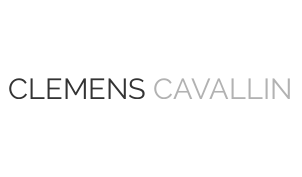A reflection on the relation between Catholic theology and religious studies
A presentation that I did in 2013 at the Pontificia Università San Tommaso as part of the workshop Scandinavian Theologians Teaching Catholic Theology is now published in a Festschrift (in Swedish) as ”Reflektion över relationen mellan katolsk teologi och religionsvetenskap” [A reflection on the relation between Catholic theology and religious studies] in Den trogne arbetaren i vingården: Festskrift till Bo Claesson, ed. Staffan Olofsson. LIR.skrifter.varia: Göteborg, pages 109–118.
I give you here the beginning of the earlier English text, which was merely a note for the presentation, not a finished article. The main idea was to probe the idea of religious studies put forward in the document Theology Today: Perspectives, Principles and Criteria published by the International Theological Commission in 2011.
Reflections on the relation between Catholic theology and religious studies
The main reference point for my reflections today on the relation between Catholic theology and religious studies is the document Theology Today: Perspectives, Principles and Criteria (from now on abbreviated as TT) published by the International Theological Commission in 2011. I will read this document from the position I at present occupy, that is, the role of a scholar within the broad field of religious studies and theology at a Swedish state university. As being both a catholic and a scholar the document clearly addresses me, though I am not a theologian in a narrow sense, as my doctoral studies focused on Hinduism. However, slowly I have started to expand my research and reflections also to my own religious tradition, Catholicism.
The role of outsider having been cultivated professionally in my capacity as a scholar of religion and my personal position within the Catholic tradition have thus come into increasingly closer contact. The similarities of my reflections within Catholic Studies to those of theology are then many, as theology is the rational reflection on and systematization of one’s own tradition.
Theology is scientific reflection on the divine revelation which the Church accepts by faith as universal saving truth. (§5)
However, one of the defining characteristics of theology is its ecclesiological nature, which is not present within religious studies in the same sense. TT makes this clear:
The proper place for theology is within the Church, which is gathered together by the Word of God. The ecclesiality of theology is a constitutive aspect of the theological task, because theology is based on faith, and faith itself is both personal and ecclesial.
But could my reflection on things catholic be within the church, when at the same time I am working as an associate professor at a secular state university? This situation is different compared with, for example, the Newman Institute, the only Catholic college, in Sweden, and Menighetsfakultet in Norway: both private theological institutes.
TT characterizes religious studies as follows:
Religious sciences/studies deal with texts, institutions and phenomena of the Christian tradition, but by the nature of their methodological principles they do so from outside, regardless of the question as to the truth of what they study; for them, the Church and its faith are simply objects for research like other objects. (§ 83)
TT remarks that there has been a rapprochement between religious studies and theology since the conflicts of the 19th century. On the one hand, religious studies have been integrated into theology on the level of method, while religious studies through its postmodern condition have reconciled themselves to that there are no neutral positions. Regardless of this exchange of methods and insights, the fundamental difference remains.
There remains, however, an essential difference between theology and religious sciences/studies: theology has the truth of God as its subject and reflects on its subject with faith and in the light of God, while religious sciences/studies have religious phenomena as their subject and approach them with cultural interests, methodologically prescinding from the truth of the Christian faith. Theology goes beyond religious sciences/studies by reflecting from the inside on the Church and its faith, but theology can also profit from the investigations that religious sciences/studies make from the outside. (§ 83)
In this way, the autonomy of religious studies rests upon its methodological agnosticism, which theology seems to acknowledge in the quotation above. However, in §84, TT reserves for Catholic theology the task of constructive critique aiming at liberating, for example, religious studies from its “anti-theological elements”. In footnote 144, the reference is made to Benedict XVI’s notion of the self-limitation of reason.
[144] Pope Benedict XVI observes a pathology in reason when it distances itself from questions of ultimate truth and God. By this harmful self-limitation, reason becomes subject to human interests and is reduced to ‘instrumental reason’. The way is opened for relativism. Given these dangers, Pope Benedict repeatedly proposes that faith is ‘a purifying force for reason itself’: ‘Faith liberates reason from its blind spots and therefore helps it to be ever more fully itself. Faith enables reason to do its work more effectively and to see its proper object more clearly’ (Encyclical Letter, Deus Caritas Est, 2005, n.28).
This theological critique, however, cuts to the heart of religious studies and in a sense questions its autonomy, which is then not founded on methodological agnosticism, but on natural theology, which requires it to recognize, for example, the existence of God, while not having to give assent to revealed Christian doctrines such as the trinity. If religious studies would acquiesce to this, it would be reborn as a preparatory discipline to Catholic theology.
…

No Comments